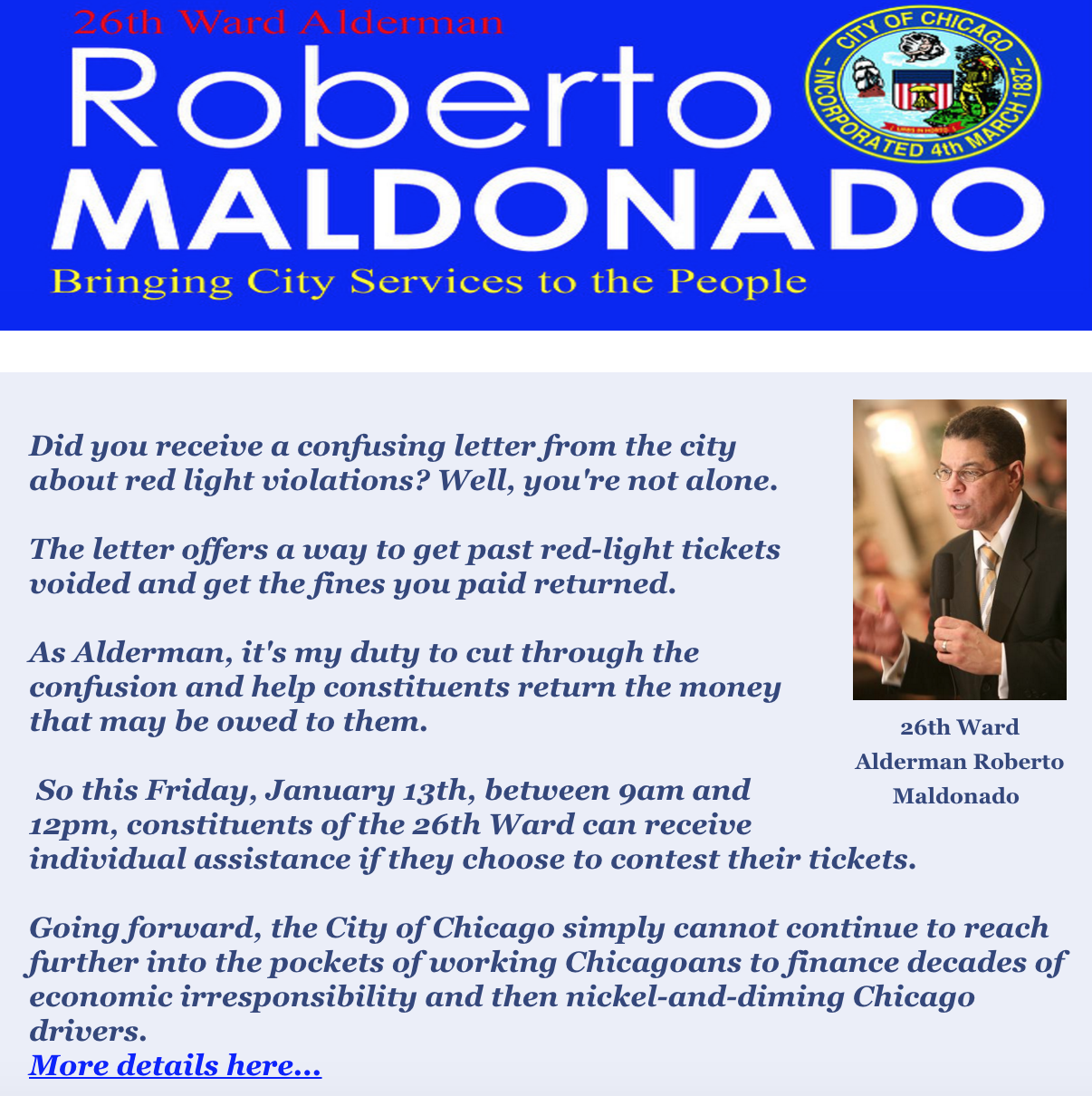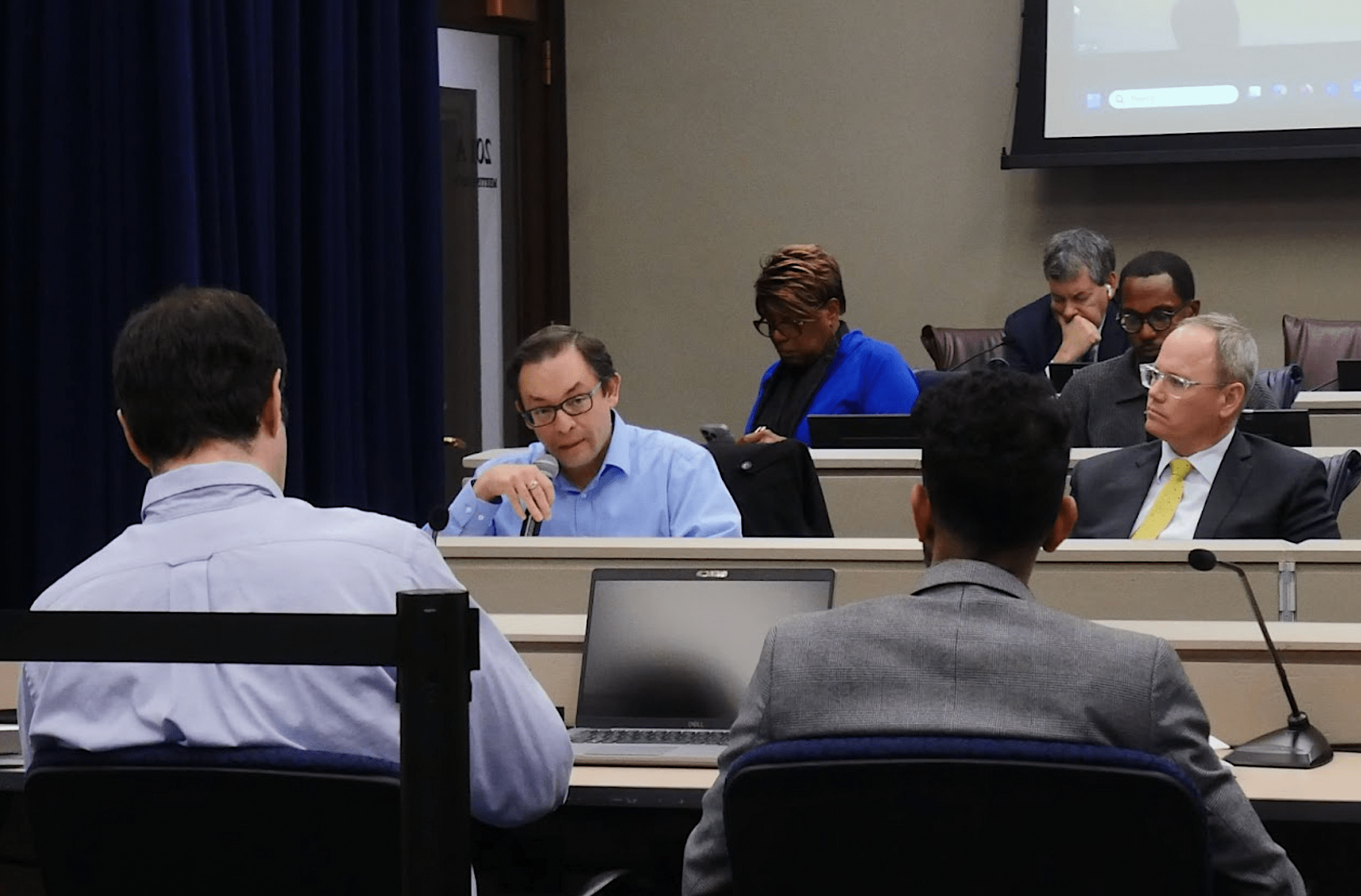It’s commendable that 26th Ward alderman Roberto Maldonado recently offered to help his constituents navigate the potentially confusing process of contesting their red light camera tickets. But, for the second time in recent memory, the alderman is also trying to come off as a populist by characterizing automated enforcement, which has been proven to save lives in cities around the word, as a scheme to rip off hardworking Chicagoans.
About a year ago, Maldonado argued that the installation of speed cameras, which in Chicago can only be placed near parks and schools, near Keystone Park in his ward was uncalled for because the cams were out of eyeshot of the green space. “To justify the installation of those speed cameras on the basis of safety of kids, it just doesn’t fly,” he told DNAinfo. “It’s a money grab.”
However, according to a Chicago Department of Transportation analysis. There were 228 crashes within Keystone’s eighth-mile “safety zone” between 2009 and 2012, including five collisions with serious or fatal injuries; speeding was factor in 27 percent of the crashes. The Keystone zone was ranked the 156th most dangerous out of the city’s 1,570 safety zones, putting it in the top 10 percent. In other words, while the cams weren’t placed there solely to protect kids walking to the park, they’re still badly needed at that location.
Last week Maldonado emailed residents with an offer to assist people who recently received letter from the city notifying them that they have a second chance to contest old red light camera tickets. "Our office is ready to help constituents confused by the letters they have received from the city,” he wrote on a web page the email linked to. “As their representative, it's my duty to cut through the confusion and help constituents return the money that may be owed to them."
That’s completely reasonable. The city mailed out those letters in the wake of a court ruling that allowed for the continuation of a lawsuit that hopes to declare hundreds of thousands of Chicago red light tickets invalid because the city only gave the motorists 22 days to challenge the tickets, rather than the 25 days required by state law. The lawsuit also alleges that the city failed to mail second notices, which are also required by the law, to people who didn’t respond.
It also must be noted that there appear to be bugs with the city website that’s supposed to allow drivers to review their old tickets. The Chicago Department of Transportation says they only recently were made aware of the problem, they immediately contacted the camera vendor to fix it, and they’ve moved back the deadline for contesting the tickets by two weeks in response to the glitch.
Still, Maldonado went too far when he wrote, “Going forward, the City of Chicago simply cannot continue to reach further into the pockets of working Chicagoans to finance decades of economic irresponsibility and then nickel-and-diming Chicago drivers."
Rules are rules, and if the city originally failed to follow the letter of the law when issuing notifications about the tickets, those ticket holders are entitled to a refund. But the fact is that most of these people deserved to be ticketed because they ran a red, potentially endangering other road users. Just because a technicality entitles them to a refund doesn’t mean they weren’t driving recklessly in the first place. If you choose to blow a red, putting other people’s lives at risk, you can’t claim you’re an innocent taxpayer having your pockets picked by greedy city officials when you get caught.





